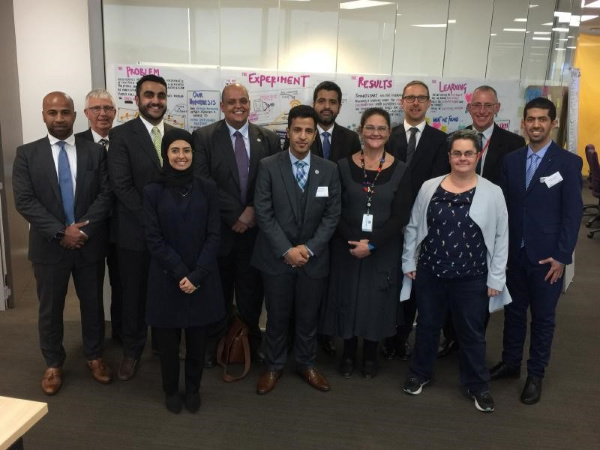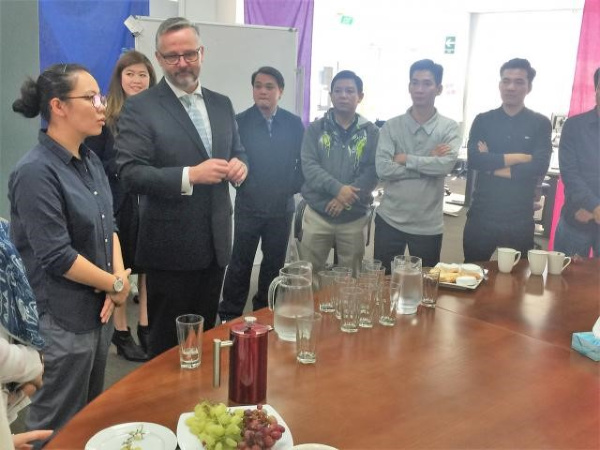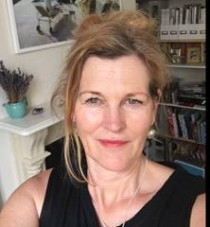The Service Innovation team welcomes visitors to its lab in accordance with tikanga Māori – and it's proving a big hit.
The Department of Internal Affairs’ Service Innovation team welcomes visitors to its lab in accordance with tikanga Māori – and it's proving a big hit.
A cultural embrace
International visitors particularly love this ‘cultural embrace’ in the form of a whakatau or mihimihi that precedes the exchange of information on how governments are becoming more innovative in delivering their services.
Many delegations later tell their host agencies their Service Innovation Lab experience was a highlight of their New Zealand visit.
Visitors in recent months have included OECD Deputy Secretary General Ulrik Vestergaard Knudsen, D9 Secretariat Jordan Storozuk, New South Wales Government Chief Information and Digital Officer Greg Wells, and delegations from the Pacific, Vietnam, Canada, the United Arab Emirates and Saudi Arabia.

Becky Cassam (Life Events Manager), Brenda Wallace (Technology and Development Team Lead), Darryl Carpenter (Integrated Services Manager) and New Zealand Trade and Enterprise representatives, with a delegation from Saudi Arabia during their visit in July 2019.
Incorporating tikanga Māori
Service Innovation General Manager Karl McDiarmid says whoever from the team is available on the day usually participates in the whakatau or mihimihi and that includes singing waiata that many now know by heart as a result of Service Innovation’s weekly te reo sessions.
Our tikanga Māori welcomes are based on the principles of manaakitanga and whanaungatanga.
The Service Innovation Lab is in the business of co-creation in a safe space, so our welcomes are about caring and making people feel connected, welcome and safe.
After a welcome, there is always sharing of kai blessed with a short karakia.
For the past 18 months, Senior Advisor Tiopira Piripi has supported the team’s understanding of tikanga Māori with voluntary te reo sessions, where team members have learnt their pepeha, waiata, purakau Māori/Māori stories and karakia.
Lab visitors are sent a run sheet a few days before they arrive that prepares them for their welcome. It explains the order of speaking, how waiata is used to support each speaker from both manuhiri and tangata whenua — and suggestions of how they can be involved to a greater or lesser extent if they choose.
A Vietnamese waiata
The team was delighted when a large Vietnamese delegation responded with a waiata of its own about their home city of Ho Chi Minh, in support of their leader’s korero — which was delivered through a translator. Their singing was joyful, bringing both groups closer despite one of the most significant language barriers the team had been faced with from a visiting delegation.

Grant Carpenter (Senior Advisor) explains the Service Innovation Lab’s approach via a Vietnamese translator in April 2019.
Tikanga Māori welcome run sheets shared
The Service Innovation team has made their run sheets available to the rest of Internal Affairs staff to support any other teams that would like to incorporate such welcomes and don’t know where to start. They point out the information is tailored for each visit and is definitely “not the Gospel”.


